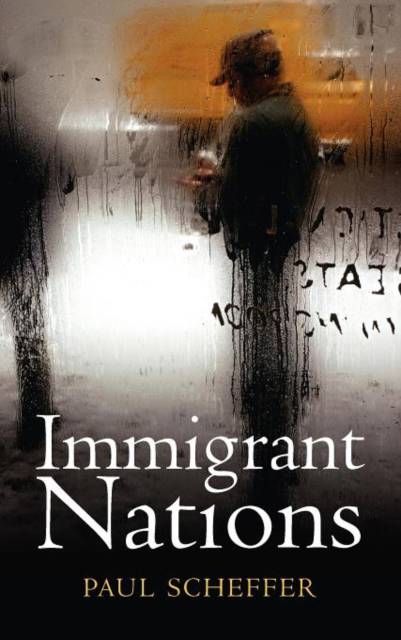
Door een staking bij bpost kan je online bestelling op dit moment iets langer onderweg zijn dan voorzien. Dringend iets nodig? Onze winkels ontvangen jou met open armen!
- Afhalen na 1 uur in een winkel met voorraad
- Gratis thuislevering in België vanaf € 30
- Ruim aanbod met 7 miljoen producten
Door een staking bij bpost kan je online bestelling op dit moment iets langer onderweg zijn dan voorzien. Dringend iets nodig? Onze winkels ontvangen jou met open armen!
- Afhalen na 1 uur in een winkel met voorraad
- Gratis thuislevering in België vanaf € 30
- Ruim aanbod met 7 miljoen producten
Zoeken
Omschrijving
This book is a major reassessment of how immigration is changing our world. The policies of multiculturalism that were implemented in the wake of postwar immigration have, after 9/11, come under intense scrutiny, and the continuing flow of populations has helped to ensure that immigration remains high on the social and political agenda.
Based on his deep knowledge of the European and American experiences, Scheffer shows how immigration entails the loss of familiar worlds, both for immigrants and for host societies, and how coming to terms with a new environment evolves from avoidance through conflict to accommodation. The conflict that accompanies all major migratory movements is not a failure of integration but part of a search for new ways to live together. It prompts an intensive process of self-examination. That is why immigration has such a profound existential impact: it goes to the heart of institutions like the welfare state and liberties like the freedom of expression.
Scheffer argues that our ability to cope with the challenges posed by immigration requires that we move beyond multiculturalism and find a new balance between openness and exclusion. Tolerance cannot be based on avoidance but should rest on the principle of reciprocity, which means that native populations cannot ask of newcomers any more than they themselves are prepared to contribute.
This principled and path-breaking book will establish itself as a classic work on immigration and will be an indispensable text for anyone interested in one of the most important social and political issues of
our time.
Based on his deep knowledge of the European and American experiences, Scheffer shows how immigration entails the loss of familiar worlds, both for immigrants and for host societies, and how coming to terms with a new environment evolves from avoidance through conflict to accommodation. The conflict that accompanies all major migratory movements is not a failure of integration but part of a search for new ways to live together. It prompts an intensive process of self-examination. That is why immigration has such a profound existential impact: it goes to the heart of institutions like the welfare state and liberties like the freedom of expression.
Scheffer argues that our ability to cope with the challenges posed by immigration requires that we move beyond multiculturalism and find a new balance between openness and exclusion. Tolerance cannot be based on avoidance but should rest on the principle of reciprocity, which means that native populations cannot ask of newcomers any more than they themselves are prepared to contribute.
This principled and path-breaking book will establish itself as a classic work on immigration and will be an indispensable text for anyone interested in one of the most important social and political issues of
our time.
Specificaties
Betrokkenen
- Auteur(s):
- Uitgeverij:
Inhoud
- Aantal bladzijden:
- 300
- Taal:
- Engels
Eigenschappen
- Productcode (EAN):
- 9780745649610
- Verschijningsdatum:
- 28/06/2011
- Uitvoering:
- Hardcover
- Formaat:
- Ongenaaid / garenloos gebonden
- Afmetingen:
- 155 mm x 231 mm
- Gewicht:
- 725 g

Alleen bij Standaard Boekhandel
+ 269 punten op je klantenkaart van Standaard Boekhandel
Beoordelingen
We publiceren alleen reviews die voldoen aan de voorwaarden voor reviews. Bekijk onze voorwaarden voor reviews.











